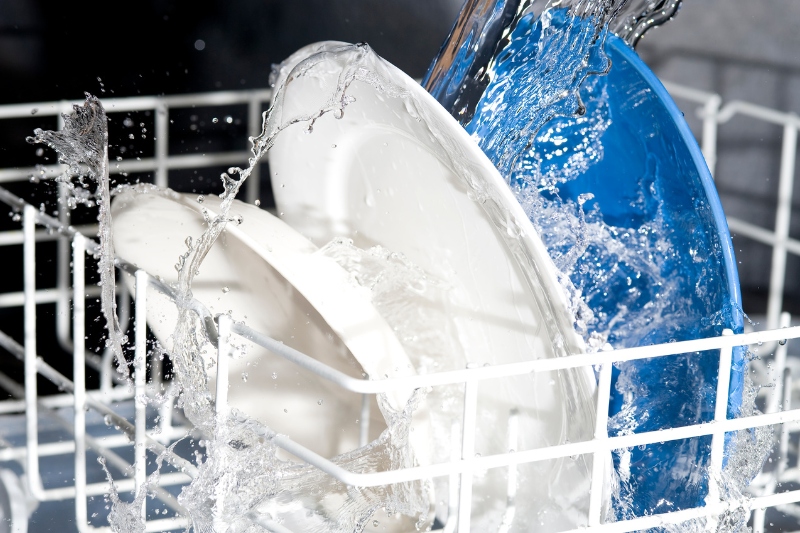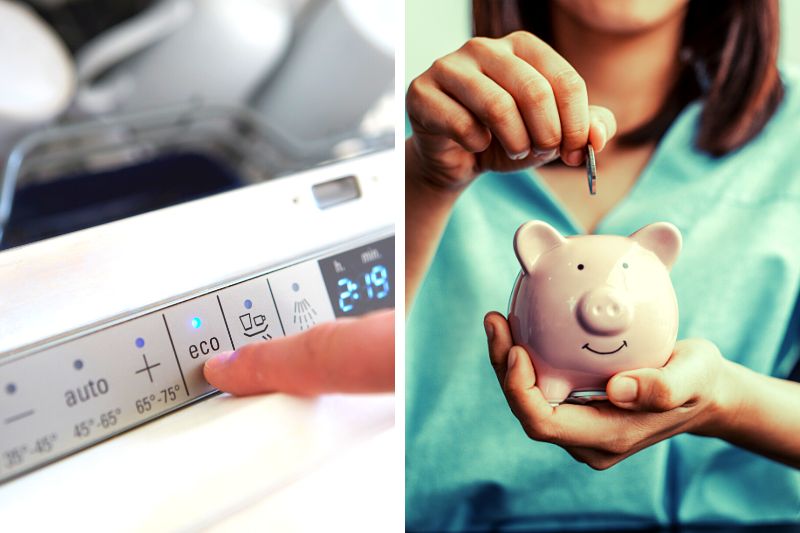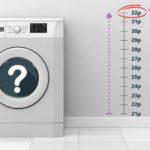A dishwasher was once considered a luxury appliance that was only found in the homes of the wealthy, with most of the population still stuck washing their dishes by hand.
However, this has changed dramatically over the years. In 1994, around 18% of households in the UK owned a dishwasher, and by 2018, this had risen to 49% with it projected to increase further.
Today, a lot of new homes are even built with kitchens designed to house dishwashers as well as the usual washing machines and refrigerators.
Increasing numbers of people can’t imagine their lives without a dishwasher simply because it gives them more time away from the dishes, when they can spend time with their families, watching TV and relaxing.
However, all this time saving does come at a cost.
Keep on reading to find out how much dishwashers actually cost to run, and whether or not we’re actually better off doing the dishes by hand.
How Much Electricity Does a Dishwasher Use and How Much Does It Cost?
Energy costs
We looked at 10 of the most popular dishwashers in the UK and found that the average model uses 0.91 kWh of electricity to clean the typical load of around 13 place settings.
At the current average electricity rate of 24.5 pence per kWh for the Energy Price Cap (EPC) period from 1 April to 30 June 2024, that means each load will cost you 22 pence (rounded to the nearest penny).
If you are running your dishwasher once a day, this will cost you around £1.54 each week in electricity.
The energy rating of an appliance can have a big impact on how much energy is used each time your dishwasher is used.
The new energy ratings scale used on appliances such as dishwashers is now more accurate than before, and runs from G through to A, with A being the most efficient.
The most energy efficient dishwashers, such as the Miele G7422SC, can use as little as 0.54 kWh of electricity per cycle, which will cost you just 13 pence per cycle and £0.91 per week. Over the course of a year, this dishwasher would add just £47.45 to your electricity bill if you use it once a day.
However, it is worth remembering that more energy efficient dishwashers tend to be considerably more expensive up front.
Water costs

According to our research, the average dishwasher with 13 place settings uses 10.68 litres of water per cycle. The average cost of water per litre in the UK about 0.1p per litre, so a cycle would cost roughly 1p in water costs.
Water usage can vary greatly between dishwashers, with some models using nearly double what other brands do.
Water costs only make up a tiny fraction of the overall cost of running a dishwasher, but it’s still worth trying to get a more water-efficient model if you can.
As an example, the Miele G7422SC uses just 6 litres of water per cycle, whereas the Beko DIN15X20 uses 12.9 litres of water per cycle.
This means the Miele dishwasher uses less than 1 pence worth of water per cycle, whereas the Beko alternative uses just over 1 pence of water.
Other costs
Owning a dishwasher comes with a few other costs in addition to energy and water. One important thing to consider is the cost of dishwasher tablets and cleaning products
It’s definitely worth shopping around for your dishwasher tablets as the cost can vary dramatically between 8 pence per wash for a supermarket’s own brand, to 27 pence per wash for more expensive brands.
Cheaper brands generally clean dishes just as effectively as the more expensive ones, so it is possible to save some money here.

Is It Cheaper to Wash Dishes by Hand Than in a Dishwasher?
Many of us assume that washing dishes by hand is much cheaper than running a dishwasher.
In the past, this was certainly true, as dishwashers were not very efficient and could use a lot of electricity and water.
However, modern dishwashers are much more efficient and can in fact save some households money when compared to washing up by hand. However, how much you could save will all depend on your washing up habits.
According to Compare the Market, running a dishwasher uses the same amount of energy and water as running a hot tap for between six and nine minutes, or filling up four to six washing up bowls.
According to Which?, even the least efficient dishwashers on the market use less water than washing by hand, and the most efficient use 10 times less water.
However, the main costs associated with running a dishwasher are energy costs rather than water costs. If your home’s water is heated by gas, it might be cheaper to wash dishes by hand, since gas prices are much lower than electricity prices. If your water is heated by electricity, a dishwasher will probably be cheaper.
How you use the dishwasher also has an effect on total costs, as does your method of washing dishes by hand! Fully filling the dishwasher before you turn it on will make it more efficient to run as compared to running half loads.
If you’re washing dishes by hand you might be able to save some money by being very efficient with your water and energy usage. For example, you could use leftover boiled water in the kettle after making a cup of tea rather than running the hot tap, and wash dishes in a bowl rather than leaving the tap running.
How to Save Money When Running a Dishwasher
How you use a dishwasher can make a huge difference in your ongoing running costs.
You can make a dishwasher as efficient as possible by using the “eco” cycle, and always making sure your dishwasher is filled correctly.
By making sure that your items are stacked correctly (glasses and cups in the top and large plates and roasting tins in the bottom), you will ensure your dishes clean properly first time, saving you money re-running cycles.
Take a look at this video which perfectly demonstrated the best way to load a dishwasher for maximum cleaning potential:
Data on Dishwasher Energy and Water Usage
To write this article, we used energy cost data from Ofgem and dishwasher energy and water usage data from Currys.co.uk.
To calculate average energy usage, we used the models in the table below.
| Model | Place settings | Water consumption per cycle (litres) | Energy usage per cycle (kWh) | Source |
|---|---|---|---|---|
| Kenwood KDW60S20 | 12 | 9 | 0.92 | Currys |
| Logik LDW60W22 | 12 | 12 | 0.92 | Currys |
| Bosch Serie 2 SMS2HVW66G | 13 | 9.5 | 0.94 | Currys |
| Sharp QW-NA1BF47EW-EN | 13 | 12 | 0.94 | Currys |
| Beko DIN15X20 | 13 | 12.9 | 0.94 | Currys |
| Boscg Serie 4 SMV4HTX27G | 12 | 9.5 | 0.92 | Currys |
| Indesit DIE 2B19 | 13 | 12 | 1.039 | Currys |
| Hotpoint HFC 3C26 W C | 14 | 9.5 | 0.95 | Currys |
| Hoover H-DISH 500 HDI 6C3D0FB-80 | 16 | 10.9 | 0.76 | Currys |
| Grundig GNFP4630DWX | 16 | 9.5 | 0.768 | Currys |

In The Wash is your guide to the best laundry and cleaning products, tips and tricks. Our mission is to solve the UK’s cleaning and laundry dilemmas!






